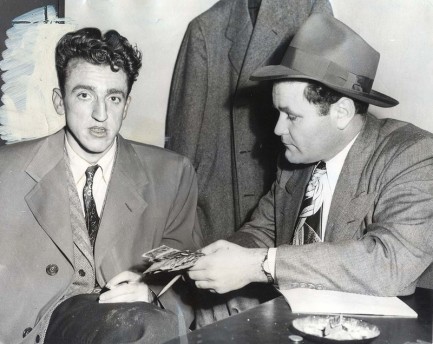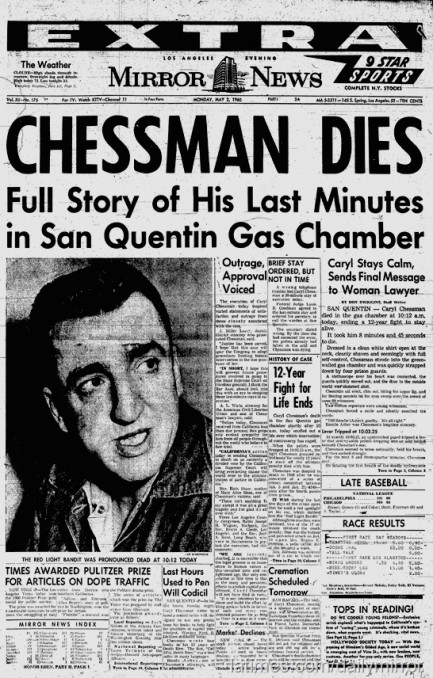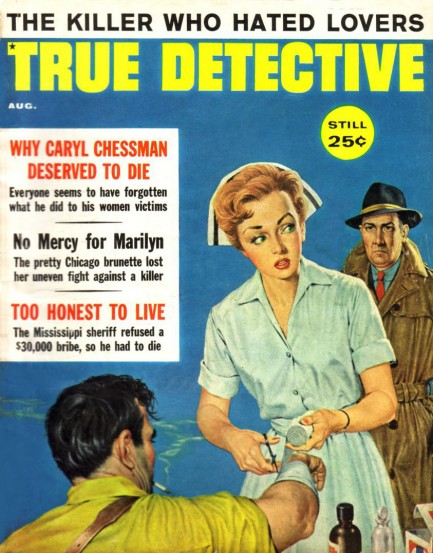| The Naked City | May 2 2017 |


Caryl Chessman and a detective named E.M. Goossen appear in the above photo made shortly after Chessman's arrest in January of 1948. Chessman had robbed several victims in the Los Angeles area, two of whom were women that he sexually assaulted. He forced one woman to perform oral sex on him, and did the same to the other in addition to anally raping her. Chessman was convicted under California's Little Lindbergh Law, named after Charles Lindbergh's infamously kidnapped and murdered son. The law specifically covered intrastate acts of abduction in which victims were physically harmed, two conditions that made the crime a potentially capital offense.

| Vintage Pulp | Mar 29 2010 |


Above is a True Detective cover from August 1960, with a story about convicted rapist Caryl Chessman. Chessman had been executed in the California gas chamber several months earlier, but not before the U.S. Supreme Court heard his appeal. The case was complicated. Chessman was the Red Light Bandit, a rapist who preyed on motorists parked in secluded areas. Using what looked like a dome light to make them think he was a policeman, he would approach them, rob them at gunpoint and sometimes violate the women. At trial prosecutors used the Little Lindberg Law to argue for the death penalty. That law was written to punish criminals who kidnapped their victims. Chessman hadn’t done that, but he had dragged one girl a short distance away from her car. Prosecutors argued that this constituted kidnapping, and in so doing promptly gave anti-death penalty advocates a textbook example of death penalty abuse. The case became national news, but after ten years of various legal battles, Chessman finally met the executioner on May 2, 1960. Three months later, True Detective waded into the continuing uproar over abuse of the Little Lindberg Law to remind people that there were actual victims involved. Their article claimed that the end justified the means. We bet how you feel about that depends on how you feel about the legal system in general. But as far as how you feel about True Detective's cover art, we'll go out on a limb and assume you think it's as brilliant as we do.




































































